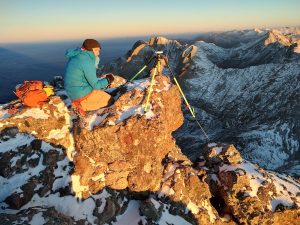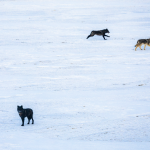Colorado ski industry worried about slowdown in J-1 visas that are ‘essential’ for resort areas’ workforce
The National Ski Areas Association says some resorts are concerned about longer vetting periods, new social media screenings and staffing shortages that risk depleting seasonal workers ahead of winter
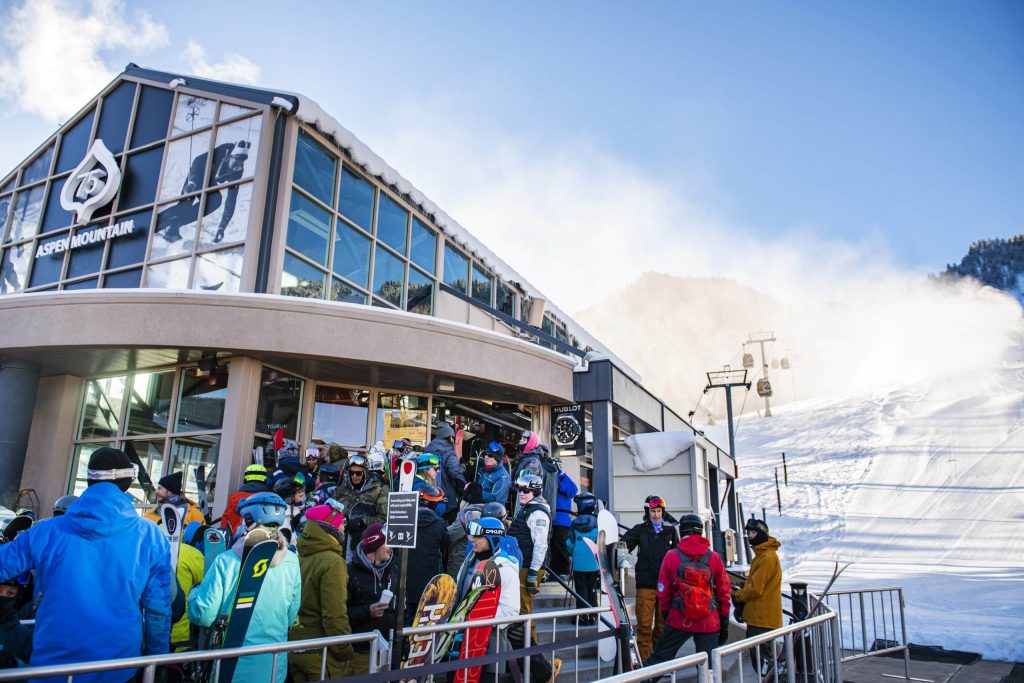
Kelsey Brunner/The Aspen Times File photo
Ski areas in Colorado and across the country are concerned about reported processing slowdowns for seasonal worker visas ahead of the 2025-26 ski season, according to the industry’s leading trade group.
The National Ski Areas Association, which represents over 300 alpine resorts throughout the U.S., said it has heard from ski areas, including in Colorado, that are worried about a potential shortage of seasonal foreign workers on J-1 visas this winter.
A J-1 visa is a non-immigrant visa that allows people from other countries to participate in temporary work and education programs in the U.S., with the purpose of promoting cultural exchanges.
In an emailed response to questions from the Post Independent, the association said some ski areas have expressed concern over “longer vetting timelines, new social media screening requirements, and significant staffing reductions at U.S. consulates.”
The association said that while “comprehensive federal data are not yet available, these reports suggest that delays could limit the number of J-1 participants arriving before the start of the winter season.”
A recent analysis of U.S. Department of State data by Inside Higher Ed found that fewer student visas had been issued this May compared to May of last year, including a 13% decline in J-1 visas.
Nearly 60% of U.S. ski areas participate in the J-1 program. In the Rocky Mountain region, ski areas average about 75 J-1 employees at each resort per season, while elsewhere in the U.S., the average is around 50, according to the ski areas association.
Colorado alone employs, on average, 8,500 J-1 workers each year across a variety of jobs, including in the ski industry, at lodging properties and in other rural businesses, the association said.
Dave Byrd, the association’s director of risk and regulatory affairs, said that visas like J-1s and H-2Bs, which allow employers to hire temporary workers for seasonal jobs, are “essential to the success of ski areas and the vitality of mountain communities.”
Sunrise Rundown: Headlines. Breaking News. Local Updates.
Get your essential news every weekday from The Aspen Times—start your day informed.
Sign up for the Sunrise Rundown at AspenTimes.com/newsletter
“They allow resorts to operate at full capacity while offering students from around the world a meaningful cultural exchange experience,” Byrd said in a statement. “Ensuring timely and predictable visa processing isn’t just an operational need— it’s a cornerstone of maintaining a vibrant, service-oriented ski industry — and all of this comes at virtually no cost to the American taxpayer.”
That’s because visa processings are mainly paid through application fees, not tax dollars.
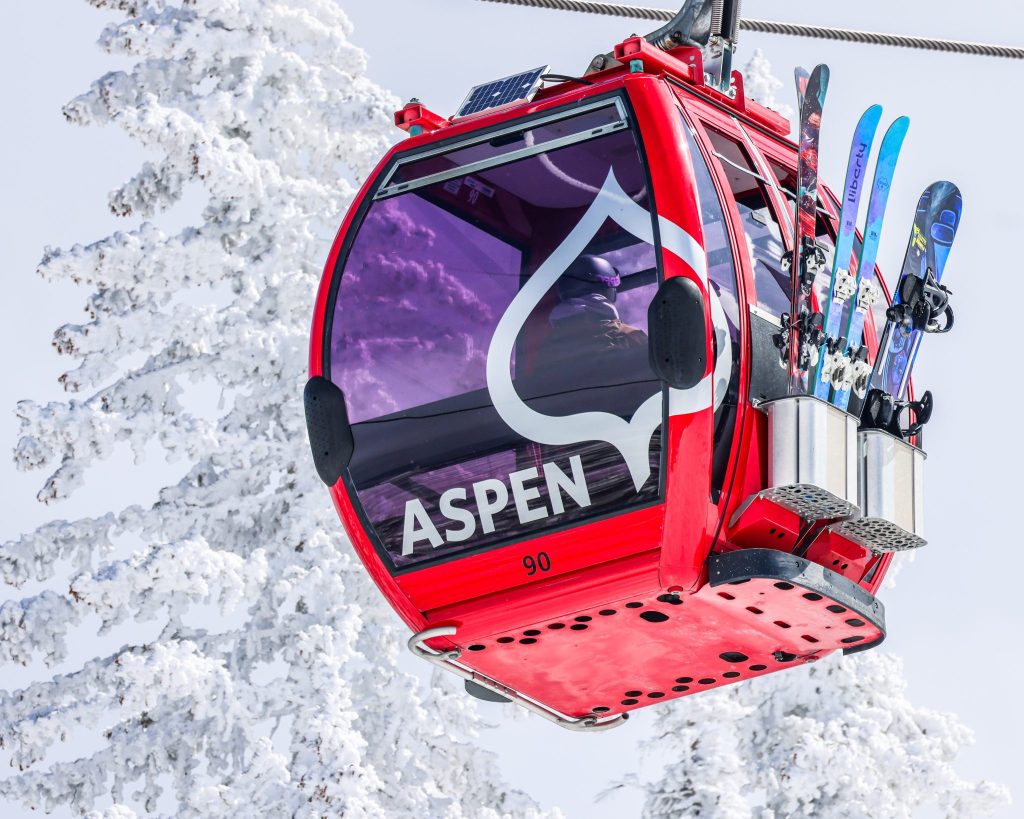
The ski areas association said fewer J-1 visa issuances would deepen existing workforce shortages across the ski industry, “especially in rural communities that do not have enough local workers to take these seasonal positions during peak season.”
That could affect ski area operations and guest services and place additional strain on domestic hiring in mountain communities where labor markets are already tight, the association said.
The slowdown in seasonal visa issuances comes as President Donald Trump’s administration continues to crack down on foreign entries, part of its broader effort to restrict immigration to the U.S.
During Trump’s first term, his administration implemented a ban on visa workers, including J-1s, that restricted the number of workers who came to Colorado in 2019 and 2020. The ban was later suspended by a federal judge and revoked by President Joe Biden in 2021.
Currently, the second Trump administration is seeking to limit how long J-1 and F-1 visa-holders can stay in the U.S., in a move that officials say is meant to “end foreign student visa abuse.” An F-1 visa is for foreign students studying in the U.S..
Under the administration’s proposal, visa holders would be allowed to stay in the U.S. for up to four years or until the completion of their program, whichever comes first. The U.S. Department of Homeland Security argues that current policy allows those visa holders to remain in the country “indefinitely” under an unspecified period of time known as a “duration of status.”
The ski areas association is less worried about this policy change, since most J-1 participants work for only a few months each year, though the trade group said it is “monitoring the proposal closely to ensure ski areas retain consistent access to this critical workforce resource.”
Still, some legal experts worry that further changes will make navigating U.S. visa programs — which have historically faced administrative backlogs and staffing challenges — even more cumbersome.
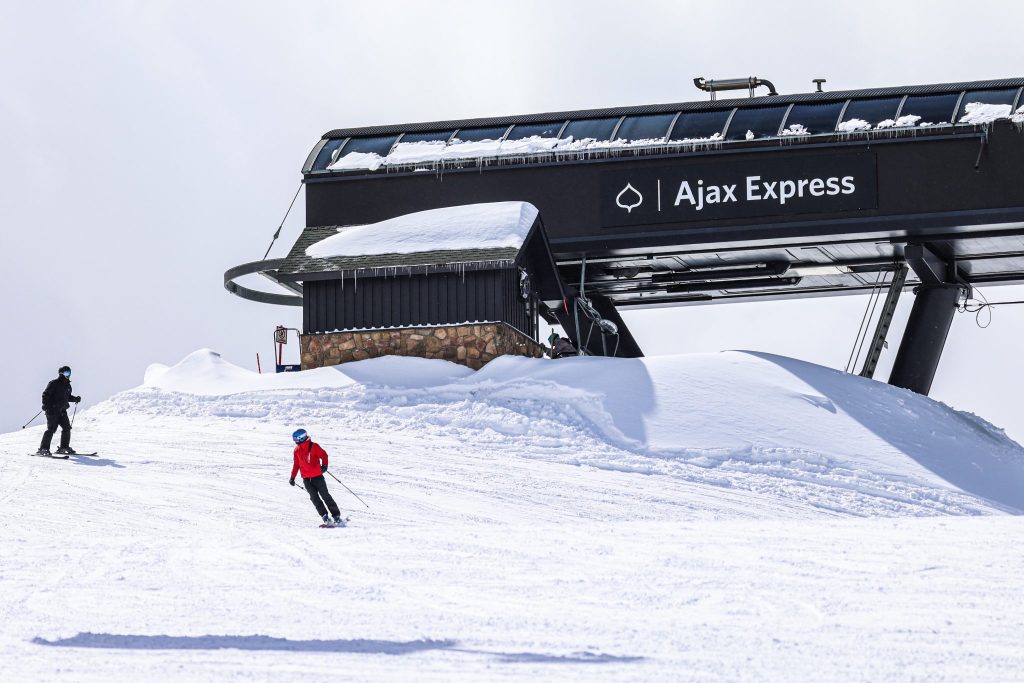
“Unfortunately, since Trump took office, I think his policies are just really adding to what we call the brain drain,” said Karen McCarthy, an immigration lawyer and founder of the Colorado firm Elevation Law.
The Department of State doesn’t release figures on the number of applications it receives for visas like J-1s, and it’s unclear yet if the administration’s policies will have an effect on interest in the program. But McCarthy said any time there are sweeping changes to visa policy, it can hurt enrollment.
“Obviously, these proposed restrictions are going to make it very distasteful for employers to have to go through additional paperwork, pay additional fees,” McCarthy said.
She added that the Trump administration’s hardline immigration tactics, including a more forceful presence of federal immigration officers, and concerns that people may be targeted because of their appearance and language, risk alienating some foreign workers, who may choose to pursue opportunities in other countries.
That would be a blow for programs like the J-1 visa, the purpose of which is to promote an exchange of skills between countries.
“It helps the United States by bringing in talented immigrants who are able to learn,” McCarthy said, “and if they’re able to bring back more experience and skills to their home countries, it benefits them as well.”
“A lot of our ski industry depends on immigrants, and I’ve worked with a lot of folks who are here on (J-1) visas,” McCarthy said. “Any changes in programs that make it harder for J-1 visa holders to operate at our ski resorts would be a real failing.”






